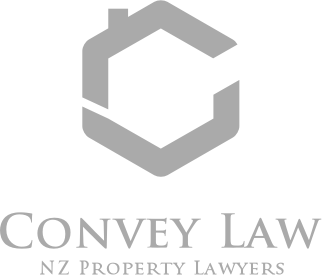Termininology
需要帮助理解房产交易中常用的术语吗?
以下是您在使用我们服务时可能遇到的术语,无论您是在购买、出售还是再融资房产:
- Agreement (also called the Agreement for Sale and Purchase)
- Auction
- Back-up offer
- Bright Line Test
- Chattels
- Commission
- Conditional agreement
- Cross-lease (title)
- Deposit
- Disbursement
- EQC Claim
- Equity
- Freehold (title)
- General authority
- GST
- Guarantee
- Interest
- Kiwisaver
- Kiwisaver (First Home Saving withdrawal)
- Kāinga Ora (First Home Grant)
- Kāinga Ora (First Home Loan)
- Kāinga Ora (First Home Partner)
- Land covenants
- Leasehold (title)
- LIM (Land Information Memorandum)
- Mortgage
- Multiple listing
- Offshore RLWT person
- Possession
- Principal
- Private sale
- Promotional Coupon
- Property Sharing Agreement (Prenuptial Agreement)
- Purchaser
- Residential land withholding tax (RLWT)
- Settlement date
- SMS Updates
- Sole agency
- Tenders
- Term
- Title (Certificate of Title)
- Transfer
- Unconditional agreement
- Unit title
- Valuation
- Vendor
- Web Tracker (Honour Law)
AGREEMENT (ALSO CALLED THE AGREEMENT FOR SALE AND PURCHASE)
这是卖方(卖家)和买方(买家)之间关于房产买卖的书面合同。签署之前,务必与您的律师讨论。
AUCTION
拍卖是一种销售房产的方式,卖方通过房地产代理或私下邀请所有感兴趣的买家在特定的日期公开竞标购买该房产。通常,卖方会设置一个最低价格,如果竞标未达到该价格,卖方将拒绝出售,但如果最高出价超过该价格,卖方将出售。拍卖过程可能会给卖方和买方带来很大的压力。卖方通常承担广告费用,这些费用可能相当高。拍卖应谨慎对待。
BACK-UP OFFER
卖方接受的第二个报价,在卖方已有一个有条件的现有合同时。日期和时间需要严格遵守。这种安排可能会给卖方和买方带来压力。
BRIGHT LINE TEST
作为2015年预算的一部分,政府宣布将引入“明确条款”测试,要求在明确定义的测试期内出售住宅房产的增值部分缴纳所得税,但主家庭住宅除外。您可以使用我们的明确条款测试工具,查看是否需要为房产销售的增值部分支付所得税。
-
对于2024年7月1日或之后出售的房产,明确条款测试将检查您的明确条款结束日期是否在购买日期后的2年内。
对于2024年7月1日之前出售的房产,适用不同的时间框架。
主要住宅 - 指主要用于居住的一个住宅;以及该人拥有最大联系的住宅(如果他们有多个住宅)。最大联系 - 考虑此人在住宅内居住的时间、个人物品是否在住宅内、社交关系最强的地方,以及此人是否在住宅所在地有就业、商业利益和经济联系。
离岸人士的定义
对于个人:
- 新西兰公民若不在新西兰且过去三年内未曾进入新西兰。
- 根据2009年《移民法》获得居留签证的人,若不在新西兰且过去12个月内未曾进入新西兰。
- 不是新西兰公民且未获得《移民法》下的居留签证的人。
对于公司或无法人资格的团体,包括信托或单位信托,依据 《海外投资法2005》第7(2)(b)至(e)条,属于离岸人士的定义。
CHATTELS
指房屋或其他房产上发现的可移动物品,这些物品包括在销售中。最常见的附属物包括炉具、电视天线、地毯、百叶窗、窗帘、灯具等,可能还包括洗碗机、冰箱、加热器等。重要的是这些物品需要在买卖协议中列明。
COMMISSION
卖方支付给房地产代理的销售佣金,通常是销售价格的一定比例或固定费用。
CONDITIONAL AGREEMENT
这是一个具有法律约束力的协议,但它受到某些条件的制约。这些条件可能涉及:买方安排适当的融资以完成购买、收到满意的建筑报告或估值报告、收到满意的土地信息备忘录(LIM)、或买方律师批准产权等。
CROSS-LEASE (TITLE)
这种产权形式常见于多个房产(通常称为公寓)位于同一产权下的情况。每个房产所有者共同拥有土地,并各自租赁自己的物业,这些物业共同构成交叉租赁产权。
DEPOSIT
买方在签署协议时支付的购房款项的一部分(通常为10%)。
DISBURSEMENT
支出是我们代表您支付给第三方的费用
例如,支付给新西兰土地信息局的费用。
EQC CLAIM
地震委员会索赔是新西兰住宅房产因自然灾害受损而提出的保险索赔。地震委员会(EQC)为住宅房产提供自然灾害保险,管理自然灾害基金,并资助自然灾害的研究与教育。
EQUITY
这是指买方实际拥有的房产部分——而非欠款!即房产的价值减去欠款部分。最初,它将是买方对房产购买价格的“现金”贡献——不包括通过按揭贷款所借的款项。
FREEHOLD (TITLE)
这种产权形式意味着您拥有房产及其上的土地,几乎没有限制(尽管产权文件中不显示任何建筑物)。这是新西兰最常见的产权形式。
GENERAL AUTHORITY
通过此授权,卖方授权多个房地产代理商尝试出售房产。
GST
这项税费通常不适用于住宅房产,但在生活方式地块、农场、商业和投资房产的交易中非常重要。
GUARANTEE
签署个人担保的人将为另一方或实体的借款提供担保。担保人需要注意:
- 担保人将对借款人向贷款人承担的所有义务和责任负责,包括未来的责任;
- 如果有多个担保人,担保人通常是共同且连带负责的,贷款人可自行决定是否执行担保;
- 如果贷款人对借款人的贷款条件进行调整,担保并不会因此解除。
这是借款人在贷款期内向贷款人支付的费用。它将以贷款的百分比表示,并在每两周、每月、每季度或有时每半年收取一次。
INTEREST
This is the sum charged by the lender to the borrower over the term of the loan. It will be expressed as a percentage of the loan and collected at intervals such as fortnightly, monthly, quarterly or sometimes six monthly from the borrower.
KIWISAVER
KiwiSaver是一个储蓄计划,旨在帮助您为退休做准备。大多数成员将通过定期从薪水中扣除的方式积累储蓄。您可以从政府网站获得更详细的信息: https://www.ird.govt.nz/kiwisaver
KIWISAVER (FIRST HOME WITHDRAWAL)
如果您已经加入KiwiSaver至少三年,您可以提取全部或部分储蓄用于购买您的第一套房产。请点击以下链接查看更详细的信息: https://kaingaora.govt.nz/home-ownership/kiwisaver-first-home-withdrawal
符合条件的成员可以提取他们的KiwiSaver储蓄(包括税收抵免)。但必须至少保留$1,000在KiwiSaver账户中。
您必须打算住在该物业中,不能用来购买投资房产。
如果您是一个合规基金的成员,您可能能够提取您的储蓄来帮助购买您的第一套房产。并非所有合规基金都允许为了此目的提取资金,因此您需要与您的基金受托人讨论。
KĀINGA ORA (FIRST HOME GRANT)
最高 5,000 澳元(新建房屋最高 10,000 澳元)的补助金,用于支付购房首付。“首次置业补助金”已于 2024 年 5 月到期,现已停止发放。
Kāinga Ora (First Home Loan)
Kāinga Ora 的“首套房贷款”是一项低首付贷款计划,旨在帮助新西兰首次购房者将首付比例降至 5%。该计划不像许多贷款机构那样要求 20% 的首付,而是允许符合条件的借款人以更低的首付比例购房。
Kāinga Ora (First Home Partner)
Kāinga Ora 的“首置业伙伴”计划是一项共享产权项目,旨在帮助首次购房者与政府机构 Kāinga Ora 合作,共同拥有房屋所有权。该计划允许个人以最低 5% 的首付购房,Kāinga Ora 支付剩余部分,之后再逐步购房。
LAND COVENANTS
许多分割地块现在都有一个契约或义务注册在产权上,限制业主可以建造的结构类型(包括围栏)或限制某些活动。必须彻底检查这些内容。
LEASEHOLD (TITLE)
这是指土地的所有者与租户之间的租赁关系,土地的所有者收取特定期限的租金。土地上的建筑物有时属于租户,但受租赁条款的限制。租户可能有选择购买完全所有权的选项,给予他们对土地和建筑物的完全无约束产权。您需要知道自己是否购买的是完全所有权、租赁产权或其他形式的房产所有权,因为这将决定您可以对该房产做什么,并影响您支付的金额。
LIM (LAND INFORMATION MEMORANDUM)
LIM(土地信息备忘录)是由当地政府提供的关于该房产的报告。它可以提供许多事项的信息,包括房产的分区、是否已获得并完成建筑许可,房屋的扩建或改建是否符合规定,税费或公共工程的支付情况。此信息因地方政府的记录范围不同而有所差异。未检查某些事项可能会带来严重后果。
LIM提供的部分或全部信息包括:
- 暴雨或污水排水系统
- 新西兰遗产保护
- 特殊土地特征,如侵蚀或洪水
- 该土地上欠缴的税费
- 由地方政府或建筑许可管理机构先前发布的许可证、建筑许可或要求,以及其他证书
- 分区 - 该土地如何使用以及任何适用的条件
- 任何法定组织对地方政府的通知,说明对土地或建筑物的任何分类用途
- 任何网络公用设施运营商根据《建筑法》向地方政府提供的通知
- 地方政府认为相关的任何其他信息。
您可以从地方政府获取这些信息。您可以向他们索取申请表或通过地方政府网站申请。您需要支付费用,并且该过程可能需要几天时间。如果您指示我们审核LIM,我们的团队将帮助您理解报告。
MORTGAGE
这是借款人提供给贷款人的担保,并注册在所购买房产的产权上。除非极少数情况下,否则房产不能在贷款未偿还且抵押未解除的情况下出售。如果借款人未能履行贷款义务,贷款人可以在通知借款人并遵循法律程序后,采取措施出售抵押房产以回收贷款。各方在抵押贷款中的义务和持续责任需要充分理解。
MULTIPLE LISTING
这是卖方通过多个房地产代理将房产列入多重上市局(MLB)的过程,以便尽可能广泛地覆盖市场。
Offshore RLWT person
离岸RLWT人是指在新西兰出售住宅房产时需要支付住宅土地预扣税(RLWT)的人。要检查您是否被视为税务目的下的离岸RLWT人,请访问此处。
POSSESSION
这是您实际占有房产的日期。
PRINCIPAL
这是借款人借入的贷款总额。
PRIVATE SALE
这是指房主在没有使用房地产经纪人的情况下出售房产。对于私人出售,尤其重要的是在签署合同前先与您的律师咨询。
PROMOTIONAL COUPON
这是我们为Convey Law客户提供的促销优惠。每个客户只能使用一次此优惠,且不可转售或交换。完成我们的“指示详情表单”后,促销优惠会自动应用。所有优惠券均受Convey Law服务条款的约束。法律禁止的地方无效。此优惠可随时由Convey Law撤销,直至客户输入优惠码为止。
PROPERTY SHARING AGREEMENT (PRENUPTIAL AGREEMENT)
当共同所有者处于关系中时,他们可能需要签署第21条协议,使双方能够在关系中“合同外”处理《财产(关系)法1976》的规定。此财产共享协议可以规定什么是独立财产或共同财产,并确定在关系结束时每方将获得的共同财产份额。如果协议已经正当地签署,法院只能在造成严重不公正的情况下推翻该协议。
然而,只有在以下情况下,这些协议才有效并具有约束力:
- 它们以书面形式存在,并由双方签署;
- 每方在签署前都获得了独立的法律建议;
- 每方的签名必须由律师见证,并由律师认证协议的法律效力已向双方解释。
如果您在奥克兰,Convey Law的任何房地产律师都可以为您处理此事。如果您不在奥克兰,您可能需要其他律师作为签名见证人,并解释协议的法律效力。我们的财产共享协议服务仅限于协议的起草。
PURCHASER
这是购买房产的人。
RESIDENTIAL LAND WITHHOLDING TAX
住宅土地预扣税是从一些住宅房产销售中扣除的税款。它由离岸人员在出售其住宅房产时支付。扣缴人代替离岸人员扣除并支付税款。
SETTLEMENT DATE
这是您支付房产的日期。通常,它与您占有房产的日期相同,但情况并非总是如此。
SOLE AGENCY
这是卖方将销售房产的独家权授予一个房地产代理的销售过程。建议这种授权仅限于指定时间,因为它限制了房产对市场的曝光。如果您与一个代理签署了独家代理协议,即使您或其他代理引入了买方,您仍然可能需要支付代理的佣金。
SMS UPDATES
SMS代表短消息服务。在线过户现已作为我们过户服务的一部分。如果您希望使用此服务,我们将通过短信向您的手机确认过户过程中的每个关键阶段。
TENDERS
这是通过私人或房地产代理进行的销售过程,其中卖方邀请买方在指定日期前以书面形式提交购买价格。招标将在该日期后开启,卖方选择最合适的招标。这个价格不一定是最高的,因为它可能取决于多个因素,包括价格、结算日期和买方所要求的条件。卖方不一定接受任何招标。
TERM
这是贷款偿还的期限。期限越长,借款人支付的利息总额就越高。
TITLE (RECORD OF TITLE)
产权证书是描述房产的文件,赋予房产合法所有权。它还包含有关您对土地的权利以及其他人对您土地的合法权益和权利的重要信息,例如地役权、抵押权和契约。在新西兰,土地相关的主要类别包括:
- 完全所有权(类型包括:普通所有权、终身财产或分层地产)
- 租赁产权(这也可以是租赁中的分层地产)
- 单元产权或交叉租赁(公寓的所有权情况)
- 公司租赁或许可(注:许可不是产权,而是进入土地的权利)
TRANSFER
A transfer instrument is a legal document used to formally register the transfer of an estate or interest in land from one party to another. It’s essentially a way to officially record a change of ownership or other rights associated with a property on the land title register.
UNCONDITIONAL AGREEMENT
这种形式的协议不依赖于任何条件。您需要确保在签署协议之前已安排好全部购买价格,并且已对房产进行必要检查。无论是条件协议还是无条件协议,您都不应在没有律师建议的情况下签署协议。
UNIT TITLE
这种形式的所有权适用于公寓和单元,其中每个所有者拥有其个人单元及与之附带的车库/停车位等的完全所有权,如单元平面图所示。单元所有者共有公共法律区域,并共同承担维护公共财产(如车道)的责任。买方应了解自己持续承担的对业主委员会的义务以及限制对物业进行何种改动的规则。
VALUATION
您的地方政府会使用估价进行评税(以前是政府估价)。这仅提供房产市场价值的指导。由专业估价师进行的私人估价将反映估价日期的市场条件。新西兰报价价值公司也会进行市场估价。
VENDOR
这是出售房产的人。卖方向安排房产出售的房地产代理支付佣金。
WEB TRACKER (Honour.law)
通过使用您的个人Web Tracker(Honour.law),您可以全天候跟踪您的房地产过
本网站上的任何信息不应被视为法律建议,所提供的信息仅供参考。您应始终就任何具体的法律问题寻求合格律师的建议。通过我们法律热线的通话可能会被录音以供培训和监控使用。外部链接是为了您的便利提供的,但它们超出了 Convey Law 的控制范围,我们不对其内容作出任何声明。使用或依赖任何外部链接及其内容的风险由您自行承担。
